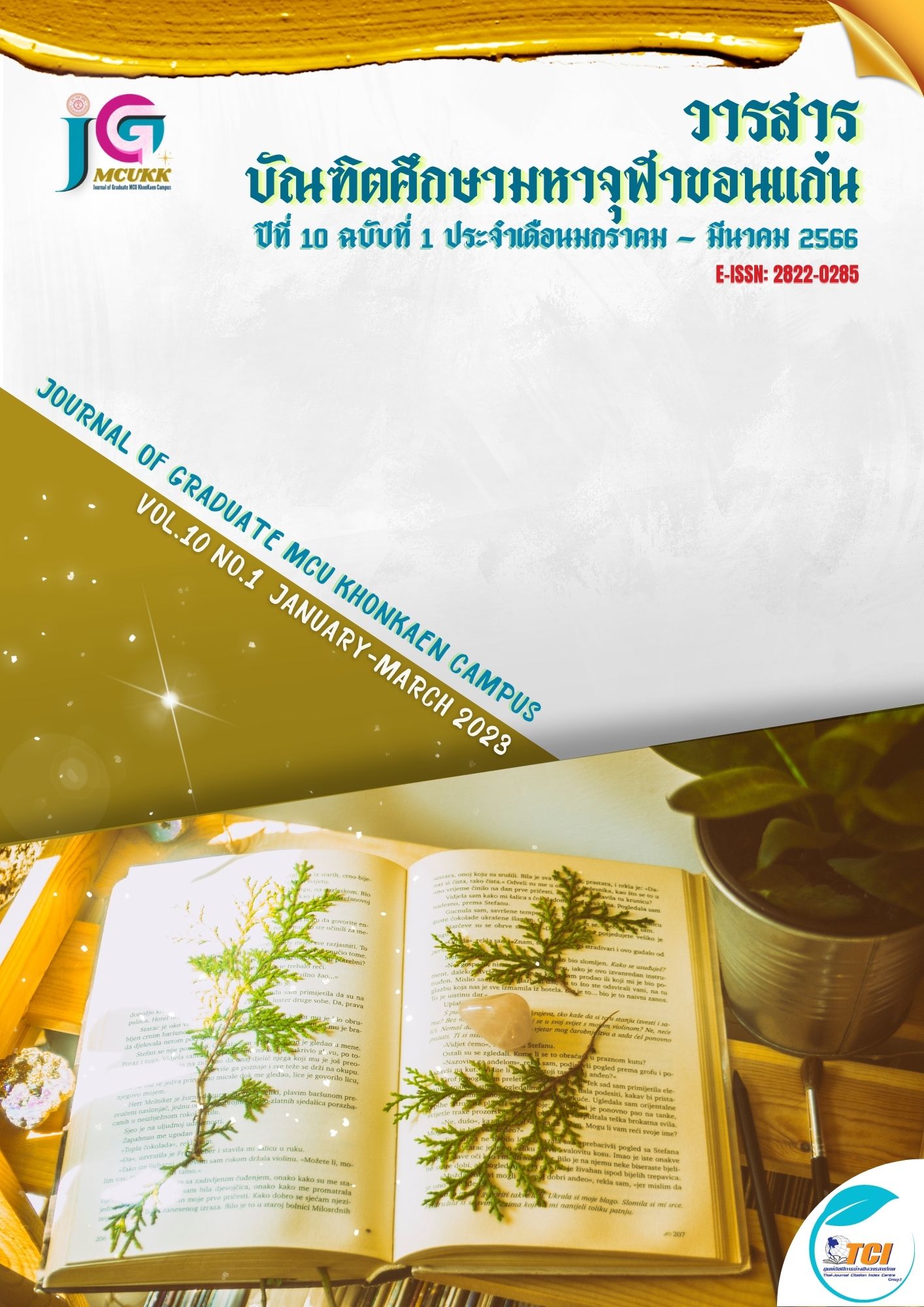A Marxist Analysis of Alienation in Poetry by Paiwarin Khao-Ngam
Main Article Content
Abstract
This article offers a Marxist critical analysis of poetry by Paiwarin Khao-Ngam. Two of his poems were selected: 1) Nao Dok Chan (The Winter’s Cold of the Palash Flower) and 2) Khon Baek Khao (The Ones Bearing the Rice). The objective of this study was to characterize alienation as it appears in Khao-Ngam’s poetry. The study found that both poems depict social inequalities between the capitalist and working classes.
Alienation among members of the working class in the poems is represented as self-alienation, as well as alienation from products as alienation from labour and from fellow beings. The poems evoke the suffering and adversity that members of the working class, or proletariat, must endure, especially those from Northeast Thailand, who are forced to migrate to the city to sell their labor in order to improve their social status, as agricultural production makes an insufficient living. Those who are unable to climb the social latter and who possess fewer assets relative to others in society will tend to feel deprived, alienated, and worthless.
According to Marxist theory, these issues can be attributed to capitalism, as worth in such a system is transferred from the human to the resources controlled by that human. Therefore, people in society must struggle to obtain valuable assets in order to demonstrate their own worth. When the ruling class, entrepreneurs or capitalists, aim to increase profits without considering their fellow humans, conflict among social relationships intensifies in the midst of rising inequalities.
Article Details

This work is licensed under a Creative Commons Attribution-NonCommercial-NoDerivatives 4.0 International License.
References
คันธพร ช่างประเสริฐ. (2552). ความแปลกแยกของตัวละครเอกชายในเรื่อง Life in the Iron-Mills ของรีเบคกา ฮาร์ดิง เดวิส. วารสารช่อพะยอม, 20(2), มปน.
เฉลิมเกียรติ ผิวนวล. (2525). ความคิดทางจริยศาสตร์ ของ คาร์ลมาร์กซ์. กรุงเทพฯ: เทียนวรรณ.
ประธาน คงเรืองราช และ สุวิน ทองปั้น. (2564). การวิเคราะห์วัตถุนิยมวิภาษวิธีของคาร์ล มาร์กซ์. Journal of Roi Kaensarn Academi, 6(9), 252-263.
ไพวรินทร์ ขาวงาม. (2560). ม้าก้านกล้วย. (พิมพ์ครั้งที่ 33). กรุงเทพฯ: แพรวสำนักพิมพ์.
ไพวรินทร์ ขาวงาม. (2553). ณ ที่ซึ่งพระแม่โพสพเคยสถิต. กรุงเทพฯ: แพรวสำนักพิมพ์.
พจนา วลัย. (2556). Alienation : การสร้างสภาวะแปลกแยกโดยระบบทุนนิยม (ตอนที่ 1). สืบค้นเมื่อ 2 พฤศจิกายน 2565, จาก http://prachatai.com/journal/2013/02/45514
สาคร สมเสริฐ. (2556). ความแปลกแยกของมนุษย์ในสังคมสมัยใหม่. วารสารนักบริหาร, 33(3), 66-74.
สิริลักษณ์ ศักดิ์เกรียงไกร. (2523). ต้นกำเนิดของชนชั้นนายทุนในประเทศไทย (พ.ศ.2398-2453). กรุงเทพฯ: สร้างสรรค์บุ๊คส์.
สุภางค์ จันทวานิช. (2551). ทฤษฎีสังคมวิทยา. (พิมพ์ครั้งที่ 10). กรุงเทพฯ: จุฬาลงกรณ์มหาวิทยาลัย.
เลิศชาย ศิริชัย. (2549). ความแปลกแยกในเรื่องสั้นไทย (พ.ศ.2507-2519). (วิทยานิพนธ์ศิลปศาสตรมหาบัณฑิต). กรุงเทพฯ: มหาวิทยาลัยศรีนครินทรวิโรฒ.
ศิริวรรณ โอสถานนท์. (2535). การศึกษาวิเคราะห์เรื่องความแปลกแยกในสังคมไทย. วารสารมนุษยศาสตร์วิชาการ มหาวิทยาลัยเกษตรศาสตร์, 2(1), 62-75.
Ollman, B. (1976). Alienation : Marx’s Conception of Man in Capitalist Society. (2nd ed). (Cambridge Studies in the History and Theory of Politics). Cambridge: Cambridge University Press.

